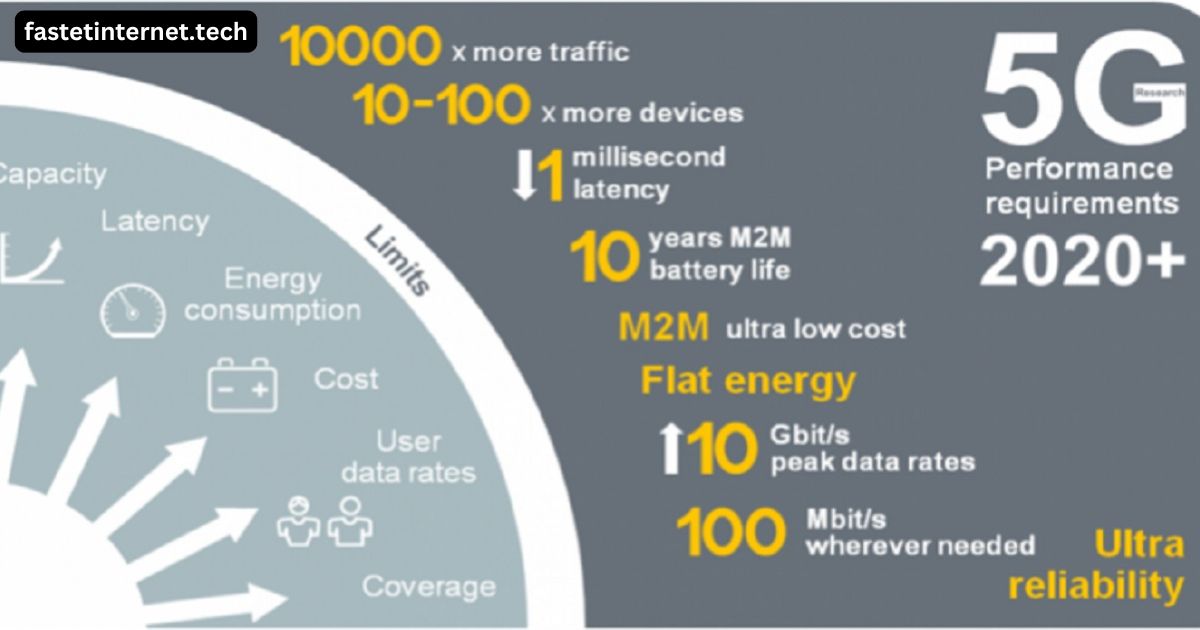As 5G technology continues to roll out worldwide, understanding how signal strength works is crucial for ensuring a seamless internet experience.
One key aspect of assessing your connection quality is understanding decibel (dBm) values, which play a central role in determining signal strength. But what is the ideal decibel range for optimal 5G performance? Let’s dive into the details.
Understanding Decibels (dBm) in Telecommunications
In telecommunications, decibels (dB) are used to measure signal strength. A dBm is a logarithmic unit that quantifies the power level of an electrical signal. In this scale, negative values are used, with 0 dBm representing 1 milliwatt of power.
For example, a signal of -50 dBm is stronger than -100 dBm. Each 3 dB change represents a doubling or halving of the signal power. This makes the dBm scale a powerful tool for evaluating signal quality across long distances.
5G Signal Strength Metrics
In 5G networks, two primary metrics are used to assess signal strength:
1. Reference Signal Received Power (RSRP):
RSRP measures the power level of the reference signals received by your device. This is a key indicator for signal strength and often provides a more accurate reflection of your connection’s performance.
2. Received Signal Strength Indicator (RSSI):
RSSI indicates the total power your device receives, including both the desired signal and any potential interference. While useful, RSSI alone doesn’t reflect the quality of the signal as it can also include noise.
Ideal Signal Strength for 5G
For the best performance, RSRP values should fall within specific ranges. Here’s a breakdown of what each range means for your 5G connection:
- Excellent Signal: RSRP ≥ -80 dBm
- Good Signal: RSRP between -80 dBm and -90 dBm
- Fair Signal: RSRP between -90 dBm and -100 dBm
- Poor Signal: RSRP ≤ -100 dBm
To ensure smooth, high-speed internet, you’ll want to stay within the “Good” or “Excellent” range. An RSRP value of -90 dBm or better is typically adequate for stable 5G performance.
RSSI and Its Impact
While RSRP is a primary measure, RSSI values can also play a role in assessing signal quality. Typically, RSSI in 5G networks will range from -50 dBm (stronger signal) to -120 dBm (weaker signal). The closer the value is to -50 dBm, the better your connection will be.
Factors Influencing Signal Strength
A variety of factors can affect the signal strength of a 5G connection:
- Distance from Base Station: As with all cellular networks, the further you are from a 5G tower, the weaker the signal becomes.
- Obstructions: Buildings, trees, and other physical structures can obstruct or weaken the signal, leading to poor reception.
- Frequency Band: 5G operates on a mix of frequency bands, with higher frequency bands offering faster speeds but also reduced range. These bands are more susceptible to interference, making them less effective over long distances.
- Network Congestion: High traffic in densely populated areas can lead to reduced bandwidth and weaker signals, even in areas where the network infrastructure is strong.
Improving Your 5G Signal
If you’re experiencing weak 5G reception, there are steps you can take to improve the situation:
- Reposition Your Device: Sometimes moving closer to windows or away from walls can make a significant difference in your signal strength.
- Check Band Compatibility: Ensure your device is compatible with the 5G bands used by your carrier to ensure optimal signal reception.
- Use a Signal Booster: In areas where 5G coverage is weak, a signal booster or repeater can help amplify the signal and improve your connection quality.
Conclusion
Understanding decibel values like RSRP and RSSI is key to determining the strength of your 5G connection. To enjoy fast, stable 5G internet, aim for an RSRP of -80 dBm or higher.
Being mindful of factors that affect signal strength can also help improve your experience, whether that means repositioning your device or using a signal booster.
By staying informed and monitoring your signal strength, you can ensure you’re getting the most out of your 5G internet connection. For more 5g Internet information check the internetgainer.



